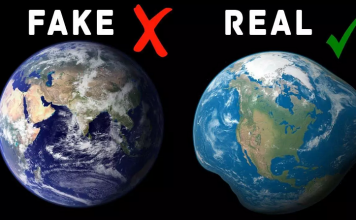The voice-over actors and actresses are the interpreters that appear with their voices in movies, cartoons, video games, documentaries or announcements, among many other formats. They also put voices in radio or television commercials. Moreover, I dare say that you have to be a great interpreter to not go unnoticed in such a competitive and specialized profession. Today we reveal interesting facts about voice acting you didn’t know!

Gestures
The fact that their expression and interpretation are not visible to the audience does not mean that there is no need to gesture, move the body, head and hands, etc. Therefore, if you are angry you will frown, if you are happy you will smile if you cry etc… always looking for the maximum naturalness and spontaneity. Achieving this is practically impossible without a few previous readings and memorization of the texts or scripts of your professional locutions.
Having a good voice is not necessary

If you think that your voice is the most important aspect to be a good voice actor, and you are not willing, or you are ashamed to convey your feelings, surely you should not continue reading. Because if you are thinking about your timbre or tone of voice all the time, you will be conditioning the interpretation. Do not blind yourself with the timbres of voice and tonalities more than enough, they really are not that important. The most important is undoubtedly the interpretation and communication with the public.
Dubbing
Voice actors in different languages are obliged to be faithful to what the foreign actor expresses, therefore they must have the ability to transmit in their respective language the same sensations and feelings as the original actor. Until they get to this point they cannot start recording. Copying the Anglo-Saxon style to dub, apart from a trap, can be very counterproductive when communicating.
Loud

Beware of the screams! The inflections are made by varying the tone or imposing a little, not shouting. Voice actor’s scream only if the character that they are acting as is going to shout.
Imitating is not copying
Looking for references in known voices and famous voice actor is totally acceptable and advisable. Try to find famous actors that resemble your timbre and registration. Imitate, do not cut yourself, but do not copy blatantly, much less a voice of a certain actor. We each have our own style and we have to work with what we have, naturally. However, imitating other voice actors will allow you to get good and varied audio demos to show your talent and originality to audiovisual producers or VA directors.
Self-criticism and self-direction

Do not censor yourself too much or think that your voice sounds bad, because you will lose confidence in yourself, and this will be reflected in your audios. There are mature actors, who do not have a resounding and serious voice, they manage to catch the audience by their naturalness and above all, by their interpretative capacity. We have to get to feel the same thing that the actor feels on screen, and then get it out through their voice.
Most voice actors work with agencies
Agencies and agents will do a lot of the work for you and are something like a manager for voice actors. They will put you in their online voice castings, send your demos to all kinds of audiovisual production companies, radio companies, audiobook producers, audio-guides, and surely there will always be something you like. Beware of the commissions and value your work in the exact measure of what you offer. It demands transparency. Online translation agencies, producers of e-learning courses or freelance translators can also be good clients and more accessible than dubbing ones.














